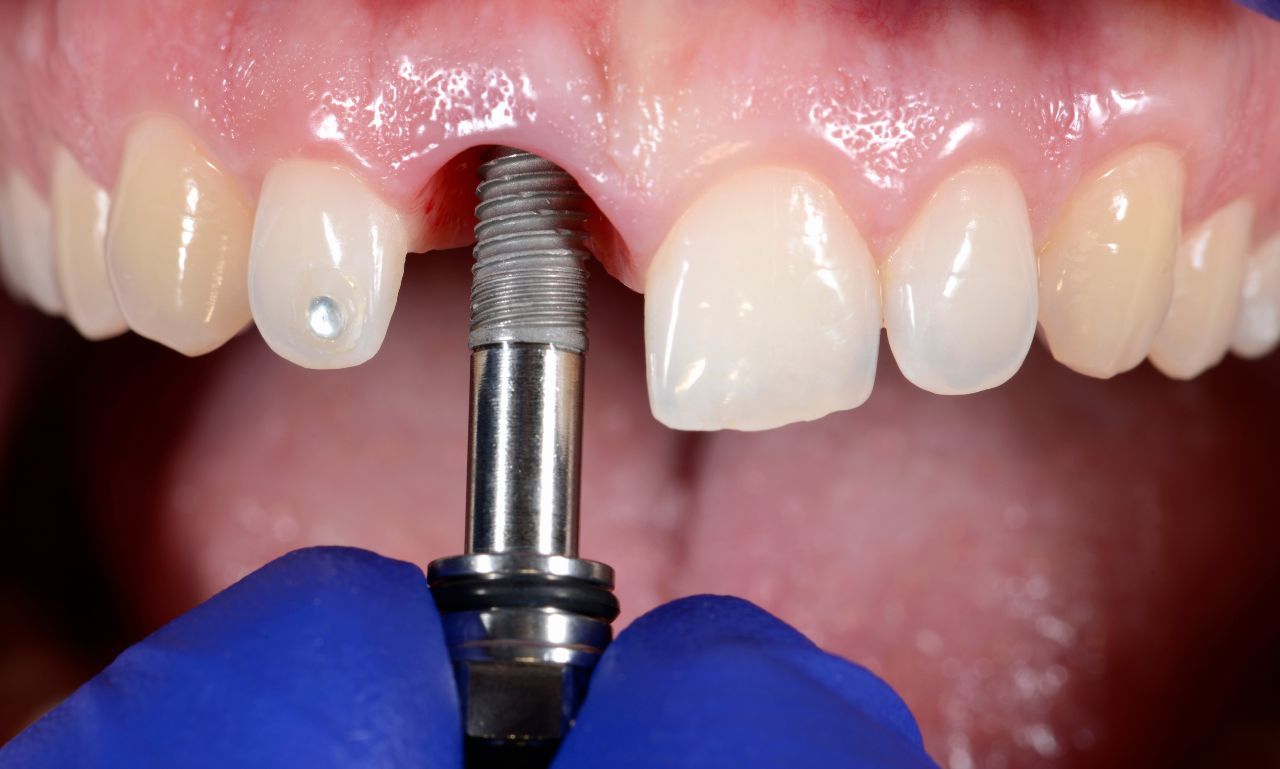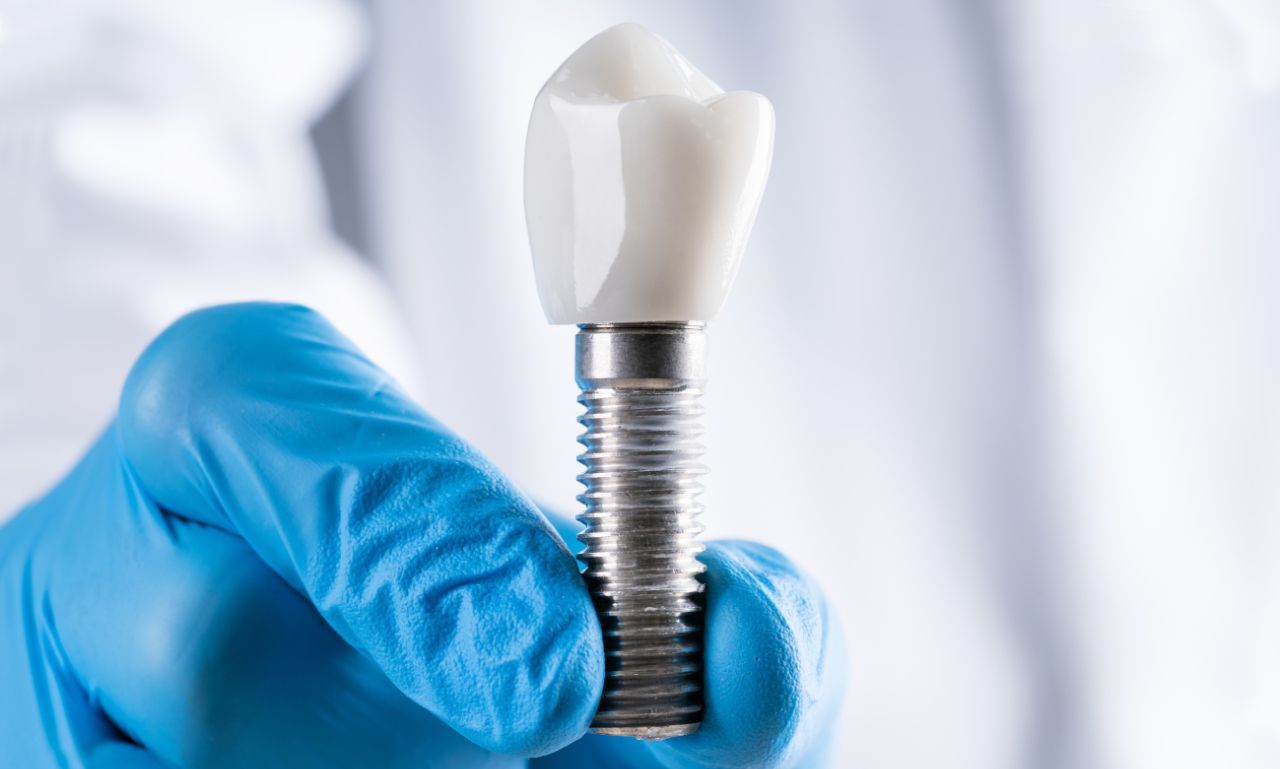If you're considering dental implants, chances are you've heard the term "stone dental implants" tossed around in discussions with your dentist or seen it in ads online. But what exactly are stone dental implants, and how do they differ from the standard options you’ve been hearing about for years?
These types of implants are becoming an increasingly popular option for people who want a long-lasting solution to missing teeth.
What Are Stone Dental Implants?
Stone dental implants are a type of dental implant that are built to mimic the hardness and durability of natural stone, making them an appealing option for patients who need something extra sturdy. Unlike traditional implants, which are often made from titanium or other metals, stone dental implants are designed to offer both aesthetic appeal and structural strength, giving patients peace of mind that their implant can withstand the wear and tear of daily use.
The term "stone" in stone dental implants doesn’t mean that the implant is literally made of stone. Instead, it refers to the advanced materials used to create the implant that imitate the hardness and durability of stone. These materials can include ceramics or other bio-compatible compounds that are designed to last a lifetime.
How Do Stone Dental Implants Work?

Stone dental implants function similarly to traditional implants, mimicking the natural root of a tooth. The implant itself is a small, biocompatible post, meticulously designed to integrate with your jawbone. During a minor surgical procedure, the implant is carefully placed into the jawbone. Over time, through a process called osseointegration, the implant fuses with the surrounding bone, creating a secure and permanent anchor. This robust foundation then supports a custom-made crown, meticulously crafted to match your natural teeth in shape, size, and color. The result? A restored smile that looks, feels, and functions just like your own.
The Science Behind Stone Implants
The magic of stone implants lies in the remarkable properties of zirconia. This extraordinary material boasts exceptional biocompatibility, meaning it harmonizes with your body's natural processes, minimizing the risk of rejection or adverse reactions. Zirconia's unique crystalline structure actively promotes bone growth and integration, ensuring a strong and lasting bond between the implant and your jawbone. Furthermore, its inherent white color provides a natural aesthetic advantage, eliminating the possibility of gray metal undertones sometimes seen with titanium implants. This makes zirconia ceramic implants an ideal choice for individuals seeking a truly natural-looking and biocompatible solution.
Comparisons with Traditional Dental Implants
While both stone and titanium implants effectively replace missing teeth, key differences set them apart. Stone implants offer a metal-free alternative, addressing concerns about metal sensitivity or galvanic reactions. Their natural white color enhances aesthetics, particularly for patients with thin gums where metal might show through. Titanium implants, however, have a longer history of use and extensive research supporting their efficacy. The choice between the two depends on individual preferences, health considerations, and aesthetic goals.
Advantages of Stone Dental Implants
Stone dental implants offer a compelling array of benefits, making them a highly desirable option for tooth replacement:
- Biocompatibility: Minimizes the risk of allergic reactions and promotes healthy tissue integration.
- Natural Aesthetics: The white color of zirconia blends seamlessly with natural teeth, creating a remarkably lifelike restoration.
- Durability: Zirconia's exceptional strength ensures long-lasting results, capable of withstanding the forces of everyday chewing and biting.
- Metal-Free Solution: Appeals to individuals seeking holistic dental care and avoiding metal in their bodies.
- Enhanced Aesthetics for Thin Gums: Eliminates the risk of gray metal undertones showing through thin gum tissue.
Biocompatibility and Hypoallergenic Features
Zirconia's biocompatibility is a standout feature. It's significantly less likely to trigger allergic reactions or inflammation compared to titanium. This makes stone implants an excellent choice for individuals with metal sensitivities or those seeking a truly biocompatible solution. The hypoallergenic nature of zirconia contributes to a healthier and more harmonious integration with the surrounding tissues.
Aesthetic Appeal
Stone implants' inherent white color is a game-changer in dental aesthetics. It blends seamlessly with your natural teeth, creating a remarkably lifelike restoration. This eliminates the concern of gray metal undertones that can sometimes occur with titanium implants, especially in patients with thin gums. The result is a beautiful, natural-looking smile that enhances your confidence and overall appearance.
Durability and Longevity of Stone Implants
Zirconia's exceptional strength and resilience contribute to the remarkable longevity of stone implants. They are designed to withstand the daily wear and tear of chewing and biting, ensuring a durable and reliable solution for missing teeth. These ceramic implants provide a robust foundation for your new smile, offering long-term stability and functionality.
The Step-by-Step Procedure for Stone Dental Implants

The stone dental implant procedure involves several key stages, each meticulously planned and executed to ensure optimal results:
Initial Consultation with Your Dentist
Your journey begins with a comprehensive consultation with your dentist. This initial meeting is crucial for assessing your oral health, discussing your treatment goals, and determining your suitability for stone implants. Your dentist will thoroughly evaluate your jawbone density, gum health, and overall medical history to create a personalized treatment plan.
Planning and Imaging Techniques
Advanced imaging techniques, such as 3D scans and digital X-rays, play a vital role in the planning process. These technologies create a detailed map of your jawbone and surrounding structures, allowing your dentist to precisely plan the implant placement and ensure optimal aesthetic outcomes. This meticulous planning ensures the best possible results and minimizes potential complications.
Implant Placement Process
During the surgical procedure, the stone implant is carefully inserted into your jawbone. Local anesthesia is used to ensure your comfort throughout the process. The surgery is typically minimally invasive, and the recovery period is generally short and manageable.
Healing and Osseointegration
Following implant placement, a healing period is necessary to allow for osseointegration. This crucial process involves the fusion of the implant with your jawbone, creating a stable and permanent foundation for your new tooth. The osseointegration period typically takes several months, during which your dentist will monitor your progress.
Final Crown Placement and Aesthetics
Once osseointegration is complete, a custom-made crown is attached to the implant. This final step restores your smile's functionality and aesthetics, completing the transformation. The crown is meticulously crafted to match your natural teeth in shape, size, and color, creating a seamless and natural-looking result.
Considerations Before Choosing Stone Dental Implants
Before opting for stone dental implants, consider the following factors:
Eligibility Requirements for Candidates
Suitable candidates typically have sufficient bone density and good overall oral health. Your dentist will evaluate your individual circumstances to determine your eligibility for stone implants. In some cases, bone grafting may be necessary to create a sufficient foundation for the implant.
Financial Aspects
Discuss the cost of stone implants with your dentist and explore insurance coverage options. While often comparable to titanium implants, pricing can vary based on individual needs and treatment complexity.
Alternative Options for Tooth Replacement
Explore alternative tooth replacement options, such as bridges or dentures. Your dentist can help you weigh the pros and cons of each option to make an informed decision that aligns with your needs and preferences.
Bone Density

Like all dental implants, stone implants require a certain level of bone density in the jaw to be successful. If you have experienced significant bone loss, your dentist may recommend a bone graft or an alternative treatment.
Longevity
If you’re looking for a permanent solution that will last for decades, stone dental implants might be worth the investment. Their strength and durability make them one of the longest-lasting options on the market.
Potential Risks and Considerations
As with any medical procedure, there are some risks associated with stone dental implants. However, these risks are generally minimal and can be mitigated by choosing an experienced dental professional. Here are a few things to keep in mind:
1. Infection
Though rare, infections can occur at the implant site. Your dentist will provide instructions on how to care for your implants post-surgery to reduce the risk of infection.
2. Implant Failure
In some cases, the implant may not successfully fuse with the bone, causing it to loosen or fail. This is more likely to occur in patients with poor bone health or those who smoke.
3. Nerve Damage
There is a small risk of nerve damage during the implant placement procedure, particularly if the implant is placed too close to a nerve in the jaw. However, this risk is low and can be minimized with careful planning.
How to Mitigate Possible Complications
Following your dentist's post-operative instructions diligently and maintaining excellent oral hygiene can significantly reduce the risk of complications. Regular dental checkups are also essential for monitoring the health of your implants and ensuring long-term success.
Long-Term Benefits of Stone Dental Implants
Stone dental implants offer numerous long-term advantages, enhancing both oral health and overall well-being.
Improved Oral Health and Functionality
Stone implants restore chewing ability and improve speech clarity. They also prevent bone loss and maintain the integrity of your jawbone structure, contributing to long-term oral health.
Impact on Confidence and Quality of Life

Reclaiming your smile with stone implants can have a profound impact on your self-esteem and quality of life. Enjoy the freedom to smile, speak, and eat with confidence, knowing you have a beautiful and functional smile that will last for years to come.
Ready to embark on your journey to a confident, radiant smile? Schedule a consultation today to explore the transformative possibilities of stone dental implants.
Is It Time to Consider Stone Dental Implants?
If you’re in need of a strong, durable solution for missing teeth, stone dental implants might be the answer you’ve been looking for. With their natural look, bio-compatible materials, and long-lasting durability, they offer a unique solution that’s becoming increasingly popular among dental patients. While they may come at a higher price point, the investment could be worth it for those seeking a permanent, low-maintenance replacement for their natural teeth.
If you’re still unsure, the best next step is to schedule a consultation with your dentist. They can help determine if stone dental implants are the right choice for you based on your individual needs and circumstances.




